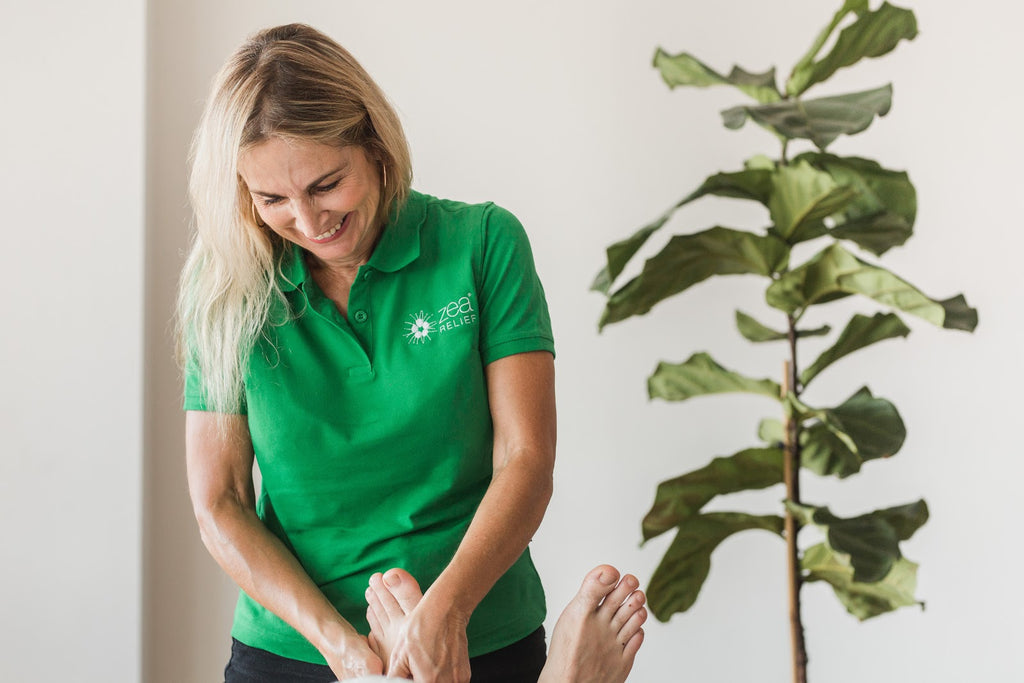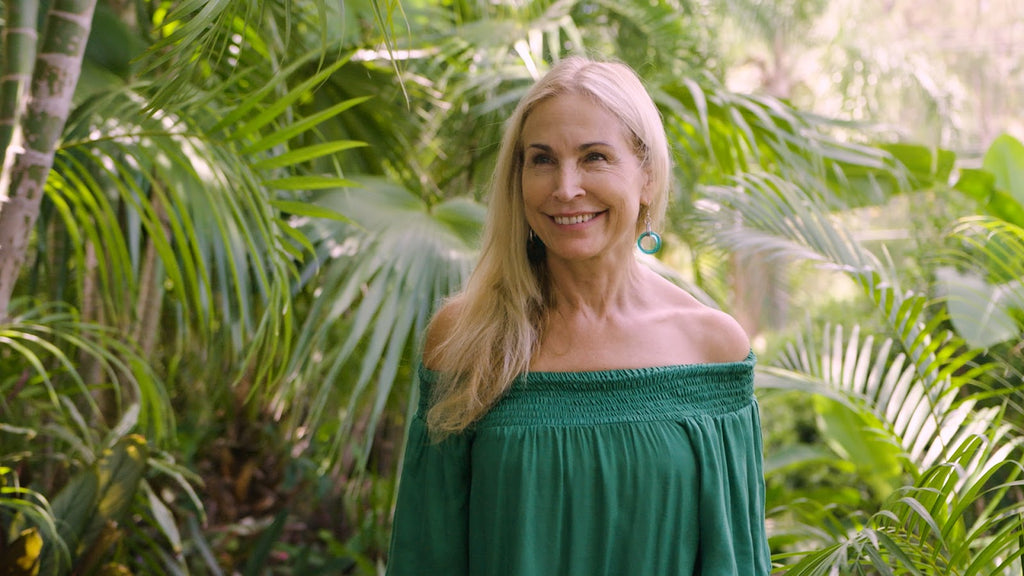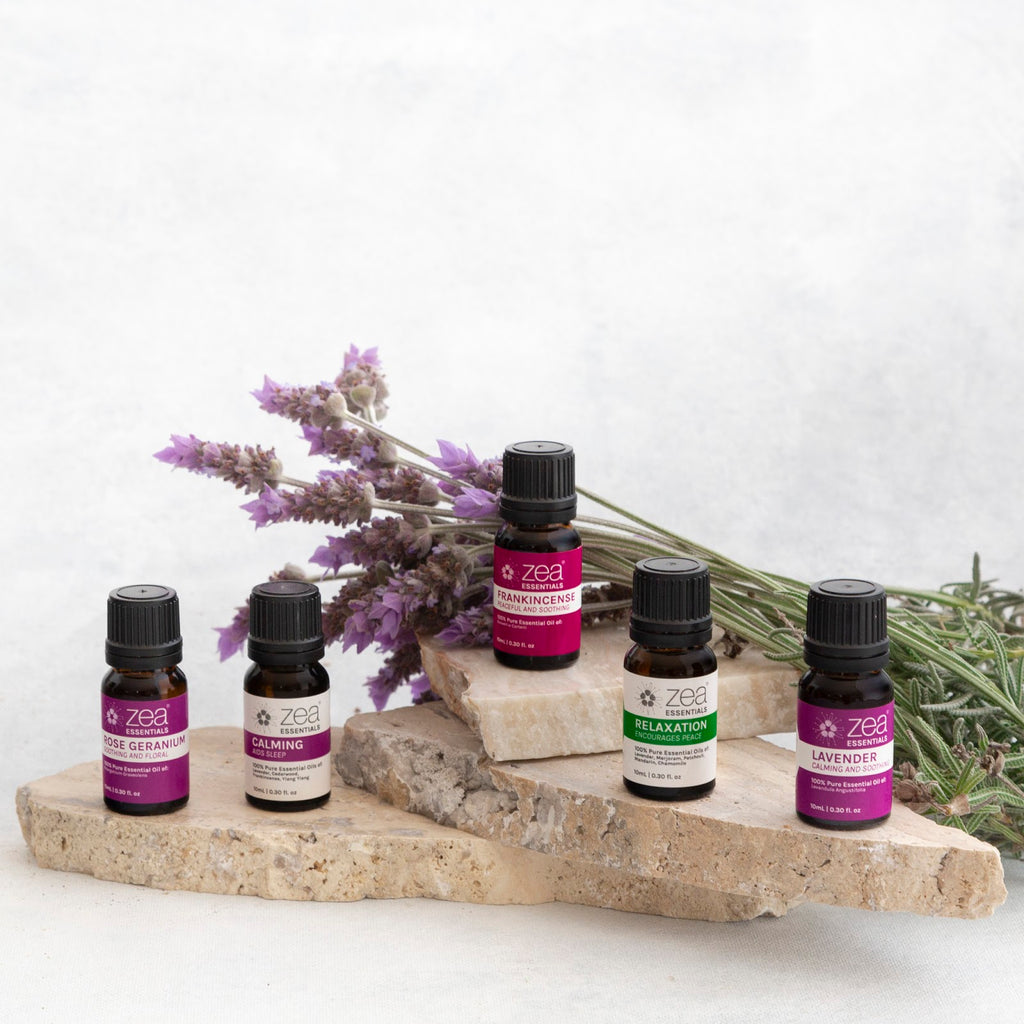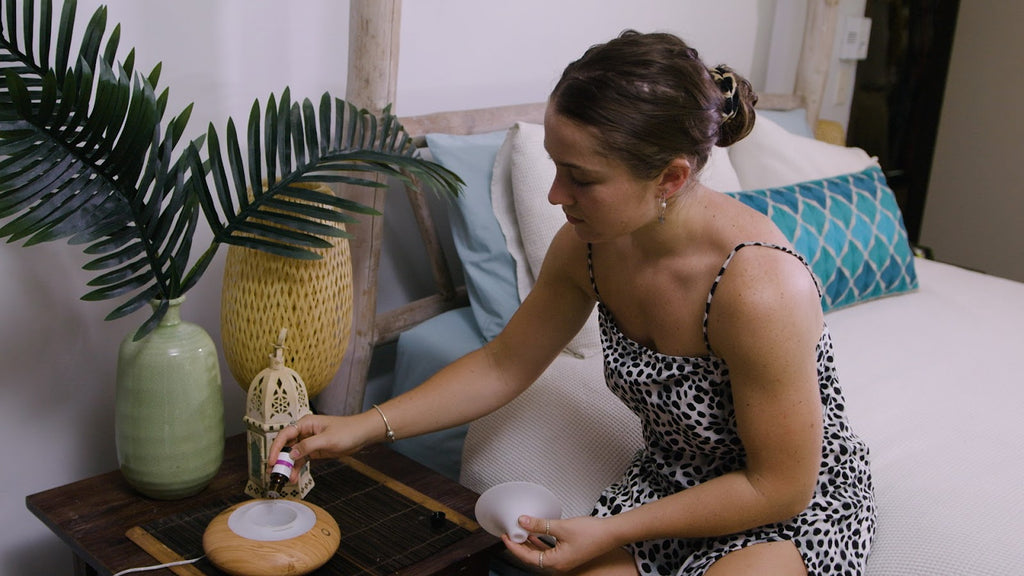Sleep is as important to our survival as food and water, and yet so many of us aren’t getting enough sleep or the high quality sleep our systems need to wake up feeling refreshed and ready to take on the day.
Despite the evolution of our lifestyle and technology, our biology still functions via our circadian rhythm, a hormonal response to the rising and setting of the sun. This would mean that, traditionally, we would go to sleep within two hours of the sun setting, and wake around two hours after sunrise1.
But with the modern lifestyle and work schedules, the introduction of stimulants such as caffeine and sugar into our diets, more emotional stress, indoor lighting and overuse of screens, we may find that we’ve desynchronised from the circadian clock and don’t get the quality of sleep we should be getting1.
There are many ways that we can improve our sleep - through reducing caffeine and sugar, exercising regularly, meditating, and yoga - and essential oils are an excellent natural way to relax your body and mind, and get a good night’s rest.
Using Essential Oils For Sleep
With so many essential oils to choose from, it can be hard to know where to start. Here are six of our favourite essential oils for relaxation and aiding sleep.
1. Lavender
Lavender Essential Oil has a relaxing effect and is able to reduce anxiety and improve mood, concentration, and sleep.
Lavender oil is one of the most researched oils for sleep enhancement. In one randomised controlled trial, 79 college students with self-reported sleep issues compared the effectiveness of lavender and sleep hygiene on sleep quality. Both the lavender and the sleep hygiene group demonstrated better sleep quality after 2 weeks2.
Lavender has a relaxing and harmonising effect on the nervous system and may be used on its own, but blends beautifully with Sandalwood, Cedarwood, Vetiver, Frankincense or Ylang Ylang for stress, anxiety and nervous tension.
2. Rosalina
Rosalina, also known as Lavender Tea Tree, is a gentle oil which is good for releasing tension, anxiety, calming, relaxing and helpful for sleep3.
A member of the melaleuca family, this is the perfect oil to use for promoting better sleep, especially for those who do not particularly like the scent of lavender or are allergic to it. It has a soft feminine delicate fragrance, which is beautiful on its own.
3. Sandalwood
Australian Sandalwood has a rich, sweet earthy, woody aroma with a balsamic base.
It’s commonly used to help de-stress, relax, keep grounded, soothing, calming, mental clarity, stilling the mind and aids in sleeping and meditation3.
Mix 2-3 drops of Sandalwood Essential Oil with Lavender or Cedarwood, or use on its own.
4. Vetiver
Vetiver is a beautiful and very powerful oil which is psychologically grounding, calming, and stabilising. It has a very deep pungent aroma, which signifies its intensity.
If you love the effects of Vetiver but don’t particularly enjoy the scent, add a couple of drops of Lavender or Rose Geranium for a sweeter, more delicate, but still relaxing, blend.
5. Kunzea
Kunzea is a wonderful oil to add to your sleep blend if pain, inflammation, or respiratory problems are contributing to the inability to sleep soundly. Often people can be kept awake at night due to pain and this is where Kunzea oil may help both in a diffuser, or topically applied to the painful areas of the body in an oil base or cream.
As an essential oil, it can also be added to your diffuser to clear sinus congestion or for coughs and colds, if these ailments are interfering with sleep. It also works beautifully with Sandalwood for a superior anti-inflammatory effect, as we have blended in our Concentrated Massage Oil.
6. Calming Lifestyle Blend
Our very own Calming Essential Oil Blend contains the perfect combination of essential oils to increase relaxation and promote a good night’s sleep. The blend of Lavender, Cedarwood, Frankincense and Ylang Ylang makes it easy to pop 2-3 drops in the diffuser at night to help with insomnia, stress, and anxiety. Gentle and effective, Calming Blend is an all time favourite for restful sleep.
Lifestyle Changes For Better Sleep
As well as using essential oils to ease your body and mind into a relaxed state at bed time, there are some other habits you can start to adopt to improve sleep hygiene and the quality of sleep you’re getting.
Regular Exercise
Exercise is both good for health and can help promote better sleep. It’s suggested that 20-30 minutes of moderate exercise daily will help sleep patterns, so find a time of the day that suits and try to incorporate this into your daily routine.
Choose a form of strengthening or aerobic exercise that suits your current needs and condition of your body so that you don’t over do things. It is important to exercise within your capability.
Yoga and Meditation
Yoga and meditation has been found to have a positive effect on sleep quality. Yoga postures can help to unwind and relax and finishing with a quiet space for 10-15 minutes of meditation can help quieten an overactive mind.
Meditation does not have to be sitting in a cross legged position which is not always easy for some people. It can be just sitting quietly with your eyes closed and centre your thoughts.
Avoid Certain Stimulating Foods and Drinks
It’s a well known fact that stimulants like sugar, fatty foods, and caffeine can affect your sleep and can cause us to form habits that create a vicious circle between stimulants and sleep.
For some people, a cup of coffee or a can of sugary soft drink is essential to starting the day and getting that first caffeine hit. The more tired we are, the more caffeine we are likely to consume to stay awake during the day. Research suggests that caffeine affects sleep latency and the time and quality of sleep4.
Fatty foods, such as fried foods, should also be avoided as fat stimulates the production of acid in the stomach, which can spill up into the esophagus, causing heartburn and - as a result - difficulty getting a restful night’s sleep.
Massage and Foot Reflexology
Massage and Reflexology are great ways to stimulate acupressure points and promote relaxation in the body, which can aid in better sleep.
A 2010 study took 25 participants in long-term care facilities who were experiencing trouble sleeping and, after five weeks of treatment, saw an improvement in their sleep quality. Whilst more studies are still required, the signs are positive that the Western World is embracing body work as more than just a luxury5.

Introduce Natural Foods and Supplements To Aid Sleep
A well balanced diet is important to a healthy life, and so reducing sugar, caffeine, and fatty foods is a great start, it can also help your sleep to try adding these in:
Magnesium - helps activate neurotransmitters that are responsible for calming the body and mind.6 Magnesium is also a muscle relaxant and is important for the distribution of minerals across the cell membrane; it encourages the entry of potassium and the removal of sodium. The cell is then correctly hydrated so very important for rehydration and overall health7.
Water - staying hydrated throughout the day will reduce the chances of leg cramps, snoring, and waking up thirsty, which can all contribute to sleep interruptions.
Cherries - cherries are one of the few natural foods that contain melatonin, the chemical that helps control our body’s internal clock. One study in men and women with insomnia found that compared to a placebo, eight ounces (230mL) of tart cherry juice in the morning and again one to two hours before bed increased sleep time by an hour and 24 minutes8.
Keep a Sleep Diary
If getting to sleep, or staying asleep, becomes a persistent issue, it can be helpful to keep a record of what might be causing disordered sleeping. Tracking your eating, bedtime, and lifestyle habits day-to-day might help you to see what is causing or contributing to sleep issues, as well as seeing what improves as you make changes.
Sweet Dreams
Sleep is such an important part of a healthy functioning system, and to ensure that we’re able to show up in our lives at our best. Making small lifestyle changes, or incorporating essential oils into our evening routines can positively impact our ability to get a good night’s sleep. If you experience prolonged bouts of insomnia or disordered sleep habits, please make sure that you seek further assistance from a medical professional.

About the Author - Michelle Brass ND
With over 25 years of experience in the natural health industry, Michelle has dedicated her life to helping others embrace the therapeutic benefits of nature. Throughout her time as a health practitioner, she has used and recommended countless traditional and conventional treatments to her clients - as she believes an integrative approach to health and wellness is very important. Michelle is passionate about using and promoting essential oils and, in particular, Kunzea Oil, as she has seen them help thousands of people over the years. She knows that using essential oils in your daily life can help bring balance to the mind, body and soul. She is constantly trialling and testing new products with her loyal clients.
To learn more about Michelle, go to her full bio page.
References
- Derk-Jan Dijk & Dale M. Edgar. Pp111-147. Circadian and Homeostatic Control of Wakefulness and Sleep, in Turek & Zee (eds.), Regulation of Sleep and Circadian Rhythms, 1999.
- Battaglia S. The Complete Guide To Aromatherapy. 3rd ed. Black Pepper Creative Pty Ltd; 2018.
- Trevena, G. A guide to Australian Native Essential oils, 5th Edition. 2012.
- Clark, I; Landolt, H. P. Coffee, caffeine, and sleep: A systematic review of epidemiological studies and randomized controlled trials (PDF). Sleep Medicine Reviews. 31: 70–78. doi:10.1016/j.smrv.2016.01.006. Accessed 8 May, 2020.
- Sun, J. Sung, M. et al. Effectiveness of acupressure for residents of long-term care facilities with insomnia: A randomized controlled trial in International Journal of Nursing Studies. https://www.sciencedirect.com/science/article/abs/pii/S0020748909003952. Accessed 8 May, 2020.
-
Jennings, K. How Magnesium Can Help You Sleep, Healthline https://www.healthline.com/nutrition/magnesium-and-sleep. Access 8 May, 2020.
-
Alexander, K. Get a Life: The Detoxification Diet Made Easy. 1997.
- Losso, Jack N. PhD; Finley, John W. PhD; et al. Pilot Study of the Tart Cherry Juice for the Treatment of Insomnia and Investigation of Mechanisms. American Journal of Therapeutics. Accessed 8 May, 2020.
Information provided by Australian Kunzea Pty Ltd, including text, images, audio or other formats, were created for education and research purposes only. It is not intended to be a substitute for professional medical advice, diagnosis, or treatment. Always read the label. These products may not be right for you. You may not rely on the information on this website as an alternative to medical advice from your professional healthcare provider.





